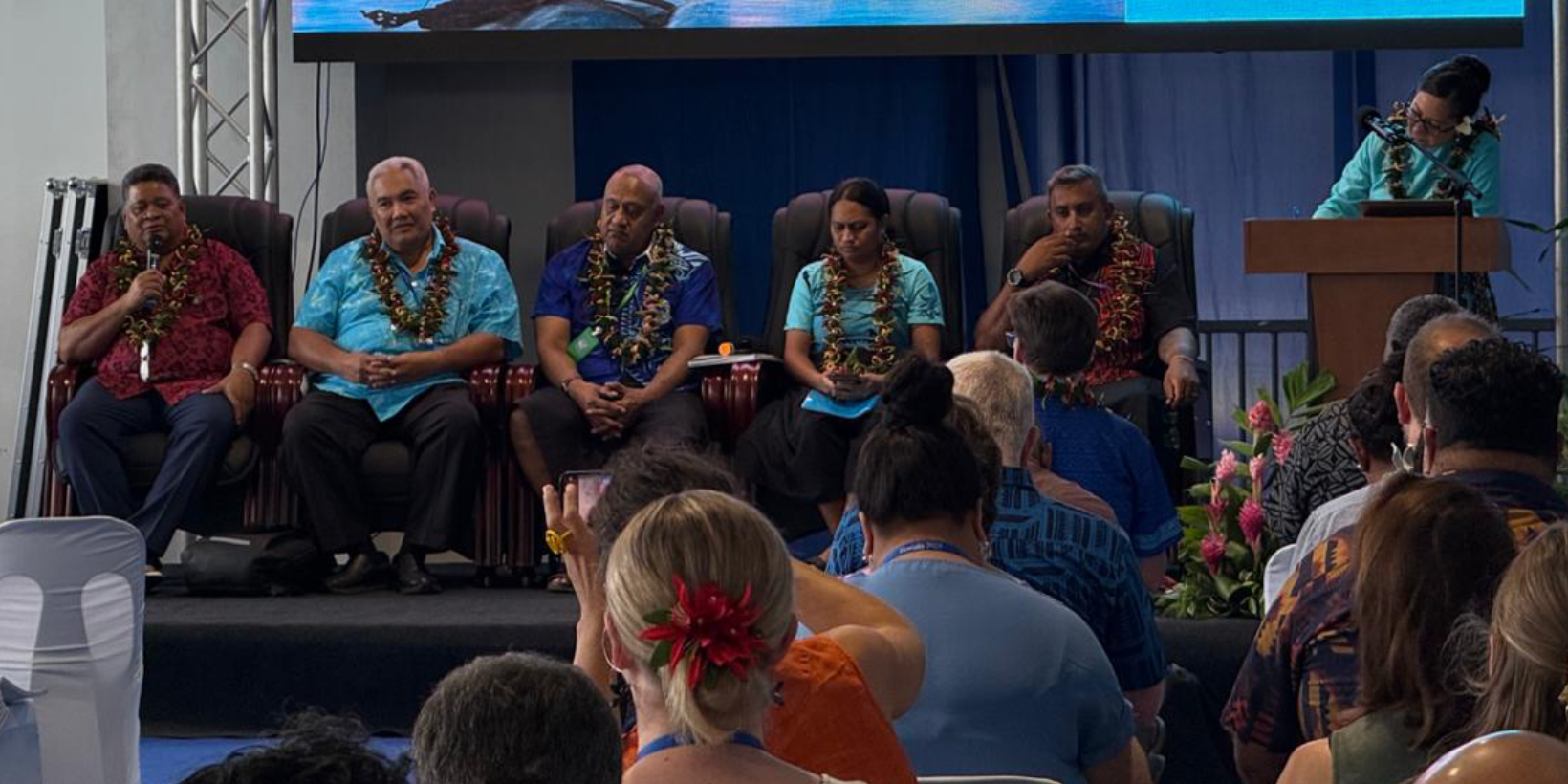Communities in the region have been urged to work together to foster peace, increase awareness and make resources available to build resilience against climate change.
This was highlighted by Ms. Josie-Ann Ashley from the Solomon Islands National Youth Congress at the side event of the 54th Pacific Islands Forum Leaders Meeting on Thursday, September 11, 2025, at the Aquatic Center in Honiara.
The event brought together a vibrant gathering of youth leaders, ministers, and regional experts convened to engage in a crucial dialogue titled “Building an Ocean of Peace through Strengthened Regional Integration.”
This significant event was co-hosted by several prominent institutions, including the Solomon Islands National University, the Pacific Islands Forum Secretariat, the University of the South Pacific, and the Pacific Security College at the Australian National University.
The spirited discussion was expertly moderated by Dr. Manu Tupou-Roosen, who guided a diverse panel through the complexities of regional integration and peace-building.
The panel featured influential figures such as Dr. Gustav Aitaro from Palau, Hon. Tingika Elikana representing the Cook Islands, Dr. Philemon Manoni, the Pacific Ocean Commissioner, and Ms. Josie Ann Ashley from the Solomon Islands National Youth Congress.
Rev. James Bhagwan from the Pacific Council of Churches also contributed to the conversation, bringing a wealth of experience and perspective.
In her contribution Ms Ashley emphasized the vital role of communities in fostering peace, asserting that true peace must begin at the grassroots level through accessibility to education, the availability of clean resources, and building resilience against climate change.
“In the Solomon Islands, 70% of our population is youth—a vibrant force for change,” she proclaimed, passionately advocating for greater inclusion of young voices in decision-making processes and more ambitious actions regarding regional priorities.
Ms Ashley further urged leaders to engage directly with the younger population, reminding them to work “hand-in-hand with us—the people.”
Throughout the discussion, key themes emerged, encapsulating the vision of the “Ocean for Peace.” These themes included the importance of sovereignty, emphasizing Pacific-led development that is deeply rooted in local values.
The idea of regional unity was highlighted as a necessity for cultivating a shared Pacific identity and purpose.
Minister Elikana notably underscored the need for strong partnerships, advocating for collaboration between leaders and their communities, particularly the youth.
There was a call for increased activism through social media platforms, innovative approaches, and the rigorous monitoring of commitments made by leaders.
“Let’s paddle this canoe together!” the youths declared, a rallying cry symbolizing their collective drive for action and partnership in pursuing a peaceful and prosperous future for the Pacific region.
By ANDRIANAH DELASALET KOLE
Solomon Star, Honiara









